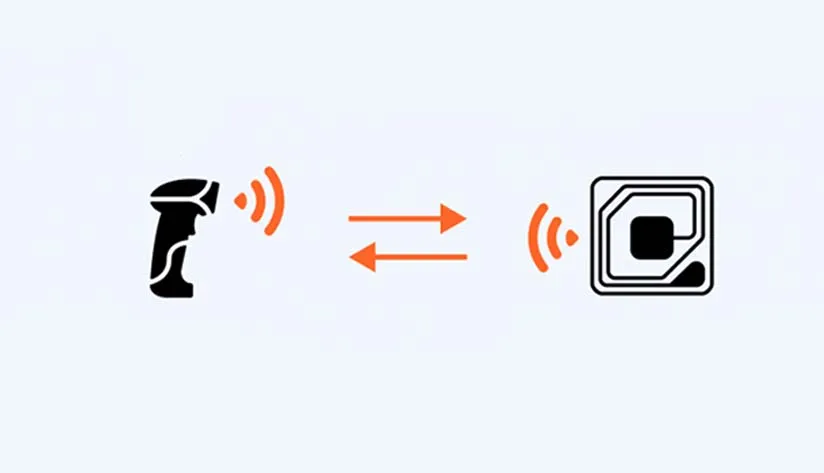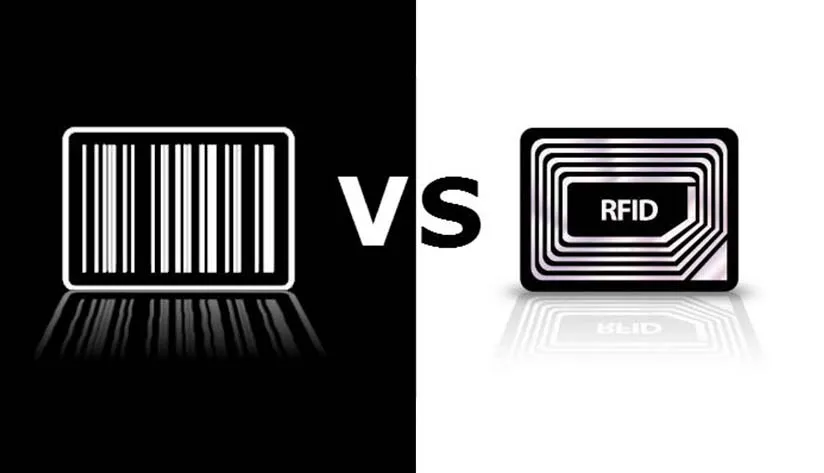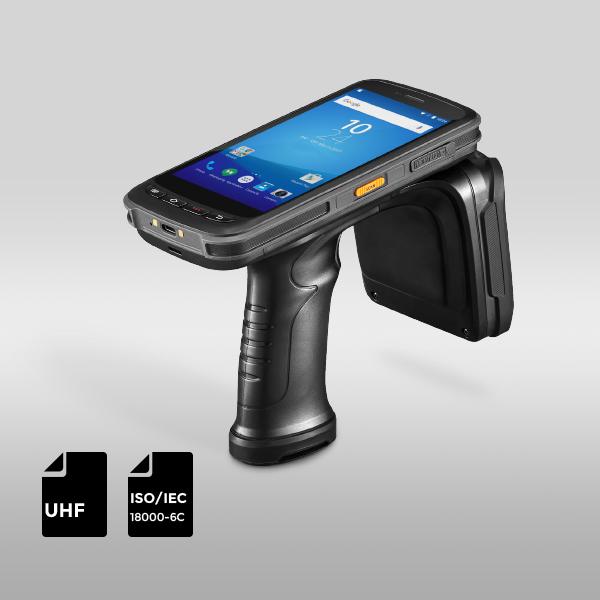
Inventory management stands as a critical function within any business, where efficiency can significantly impact a company’s success. Radio Frequency Identification (RFID) technology has emerged as a transformative solution, empowering organizations to elevate their inventory management processes. By leveraging RFID tags and readers, businesses can streamline operations, enhance accuracy, minimize errors, and gain real-time visibility into their inventory systems.
1. Understanding RFID Technology
Radio Frequency Identification (RFID) represents a wireless communication technology designed for the automated identification and tracking of objects, assets, or individuals. It employs radio waves to transmit data from a tag affixed to an item to a reading device. Within inventory management, RFID tags are attached to products or assets, and RFID readers scan these tags to provide real-time insights into the item’s location, status, and movement.
Components: RFID Tags and Readers
An RFID tag comprises a microchip and an antenna, typically affixed to a product or asset. Two primary types of RFID tags exist:
Passive RFID Tags: These tags lack an internal power source and instead derive energy from the radio signals emitted by the RFID reader. Passive RFID tags are cost-effective and commonly employed in inventory management applications, such as tracking products within a warehouse.
Active RFID Tags: These tags are equipped with an internal battery, enabling them to transmit signals over greater distances than passive tags. They are well-suited for tracking high-value items and assets requiring continuous monitoring.

RFID Readers: Scanning and Communication Devices
RFID readers are devices that facilitate communication with RFID tags. They emit signals to activate RFID tags, enabling the tags to transmit data back to the reader. RFID readers can be either fixed or mobile, depending on specific business requirements:
Fixed RFID Readers: These readers are installed at designated locations within a business, such as warehouse entrances or loading docks. They are designed to automatically scan RFID tags as items pass through these areas.
Mobile RFID Readers: These portable devices enable employees to manually scan and track items, making them suitable for inventory counting, restocking, and item retrieval.
The Synergy of RFID Tags and Readers
RFID Tags: Each inventory item is fitted with a unique RFID tag, storing electronic information such as product identification and manufacturing dates. Passive tags are often preferred due to their low cost and lack of battery requirements.
RFID Readers: Readers activate and read information from tags using radio waves and can also update tag data.
Data Exchange: When inventory items are within range of the reader’s signals, tags and readers exchange data, updating the inventory management system.
Real-time Inventory Updates: The RFID system automatically updates inventory information, ensuring data accuracy and eliminating the need for manual counts.
Synergistic Effect: RFID tags and readers streamline inventory management processes, improve counting efficiency, reduce errors, and provide real-time, transparent, and traceable inventory data. This optimization leads to improved replenishment and distribution strategies.
2. Transforming Inventory Management with RFID Tags and Readers
Traditional inventory management methods, such as barcode scanning and manual counting, are often susceptible to human errors, time-consuming processes, and limited real-time inventory data. RFID tags and readers offer a significant improvement in these areas.
Enhancing Accuracy and Minimizing Errors
A key advantage of RFID technology is its ability to significantly improve the accuracy of inventory management. Traditional barcode scanning systems require a direct line of sight for each scan, making them prone to errors, especially when items are misplaced or not scanned correctly.
RFID eliminates the need for direct line of sight, enabling bulk automated scanning of multiple items simultaneously. This greatly reduces the likelihood of human errors and ensures the accuracy of inventory records.
Real-Time Inventory Tracking Capabilities
RFID provides real-time inventory tracking capabilities. Because RFID tags continuously transmit data, businesses can monitor inventory levels, item locations, and movements instantaneously. This visibility is crucial for companies that need to maintain a constant awareness of their inventory data. With real-time overviews, businesses can reduce the risk of stockouts, improve order fulfillment rates, and avoid overstock situations, ultimately enhancing supply chain efficiency.

Accelerated Inventory Counting and Audits
Manual counting can be time-consuming and often leads to discrepancies between actual inventory and recorded levels. RFID technology accelerates inventory counts by automatically scanning all items within range, enabling quicker stock audits without the need to manually check each item. With RFID, businesses can conduct more frequent counts, ensuring that inventory data remains current and discrepancies are identified and addressed promptly.
Enhanced Security and Loss Prevention Measures
RFID technology plays a significant role in improving security. By tracking the movement of items throughout the supply chain, businesses can more effectively detect instances of theft or loss. Active RFID tags can even trigger alarms if items are removed without authorization. Furthermore, the real-time tracking capabilities of RFID make it easier for businesses to pinpoint the exact location of lost or stolen items, enabling swift action to recover them.
Optimizing Supply Chain and Inventory Management Strategies
Leveraging real-time data from RFID tags and readers allows businesses to optimize their entire supply chain management. RFID facilitates the automation of various tasks, such as receiving goods, tracking inventory, and processing orders. This enhances efficiency, reduces bottlenecks, and ensures that inventory levels are consistently accurate. Additionally, RFID technology provides businesses with deeper insights into their supply chain performance, helping them identify inefficiencies, improve logistics, and make more informed decisions regarding inventory replenishment and distribution.
Improving Customer Experience Initiatives
By ensuring accurate inventory levels and faster order fulfillment, businesses can provide a superior customer experience. Real-time inventory management enables companies to process orders more quickly and efficiently, reducing delivery times and increasing customer satisfaction. Furthermore, RFID-supported product tracking features allow customers to receive detailed status updates and delivery information about their orders.
3. Applications of RFID in Inventory Management Across Industries
RFID technology has a wide range of applications that help various industries enhance their inventory management efficiency. From retail to healthcare, the benefits are substantial.
Retail Industry Applications
In the retail sector, RFID is used to track inventory from warehouses to store shelves. RFID tags and readers assist retailers in managing inventory levels, optimizing product placement, and reducing losses due to theft. Customers also benefit from RFID technology, which accelerates the checkout process and makes inventory replenishment more efficient.
Manufacturing Industry Applications
Within the manufacturing sector, RFID technology is utilized to track the flow of raw materials, components, and finished products. By implementing RFID, manufacturers can ensure that there is a sufficient supply of materials during the production process, preventing delays caused by stock shortages.

Healthcare Industry Applications
In the healthcare field, RFID technology is employed to monitor medical equipment, medications, and patient records. It ensures that critical items can be accessed promptly when needed, reduces errors, and enhances patient safety through real-time tracking of medications and treatment statuses.
Logistics and Warehousing Applications
Logistics companies and warehouses greatly benefit from RFID-supported inventory management. RFID tags and readers facilitate the tracking of goods as they move through the supply chain, from receiving and storing inventory to shipping and delivery. This optimizes warehouse operations, lowers handling costs, and speeds up order fulfillment.
Food and Beverage Industry Applications
In the food and beverage sector, RFID technology helps manage perishable goods by ensuring inventory can be traced throughout its shelf life. RFID tags can monitor storage conditions and issue alerts when products are nearing expiration or are improperly stored.
4. Challenges in Implementing RFID in Inventory Management
While the application of RFID tags and readers offers numerous benefits across various industries, businesses should also consider the following challenges when implementing RFID technology:
Initial Setup Costs Considerations
The initial investment in RFID technology can be relatively high, especially concerning the purchase of tags, readers, and software. However, companies should focus on the long-term cost savings achieved through enhanced efficiency, reduced labor costs, and fewer errors.
Integration with Existing Systems Considerations
Integrating RFID technology with existing systems and processes can be complex. Businesses need to ensure that the RFID system is compatible with their current inventory management software and hardware, which may require additional time and resources.
Privacy Concerns and Mitigation
It is essential to utilize RFID tags and readers that meet the security requirements specific to your industry, enhancing protections for customer privacy and critical data. Businesses must be vigilant about the potential privacy implications of tracking assets and individuals.
Conclusion
RFID technology is revolutionizing inventory management by providing real-time data, minimizing errors, and improving efficiency. Whether it’s tracking products in retail, monitoring raw materials in manufacturing, or ensuring compliance in healthcare, RFID tags and readers are transforming how businesses manage their inventory. As RFID becomes increasingly affordable and accessible, it is clear that companies across industries will continue to adopt and leverage this technology to optimize operations and maintain a competitive edge.
Take Action Now! If you want to enhance your inventory management efficiency, reduce losses, and obtain more accurate supply chain data, now is the perfect time to consider RFID technology. Contact us to learn how to integrate RFID solutions into your business and receive RFID samples tailored to your needs! We are a leading **RFID tag, RFID label, NFC card, RFID card, RFID reader, RFID sticker Wholesale factory customize supplier manufacturer.**
Frequently Asked Questions (FAQs)
1 How do RFID tags improve inventory accuracy?
RFID tags enhance inventory accuracy by providing automated and precise data to track inventory items, thus reducing the chances of human error. They can simultaneously track multiple items, ensuring that all products are correctly recorded.
2 Is implementing an RFID system expensive?
While the initial investment in RFID technology is high, businesses will experience higher cost-effectiveness in the long run through improved efficiency, reduced labor costs, and fewer errors.
3 How does RFID improve supply chain management?
RFID enables businesses to track products in real time, which increases visibility in the supply chain. This aids in inventory planning, demand forecasting, and faster response times, resulting in improved supply chain efficiency.
4 Is RFID technology suitable for all industries?
Yes, RFID technology is applicable across nearly all industries, including retail, manufacturing, healthcare, logistics, and food. Each sector can tailor its use of RFID to optimize inventory management based on individual needs.
Recommended Products


RFID Antenna UHF
15-Meter Cable for UHF RFID Fixed Reader
UHF Tag
4″x2″ 860-960MHz UHF RFID Label RFID M4D
UHF Tag
4″x4″UHF RFID Label Alien H3 | ISO18000-6C
RFID Antenna UHF
5-Meter Cable for UHF RFID Fixed Reader
HF Card
ABS RFID KEY-FOB Tag RFID Classic 1K
HF Card
ABS RFID KEY-FOB Tag RFID Classic 4K
HF Card
ABS RFID KEY-FOB Tag RFID Ultralight C
HF Tag
ABS RFID KEY-FOB Tag RFID Ultralight EV1
LF Card
ABS RFID KEY-FOB Tag ATA5577
LF Card
ABS RFID KEY-FOB Tag EM4200
HF Card
ABS RFID KEY-FOB Tag EM4305
HF Card
ABS RFID KEY-FOB Tag RFID TAG 213